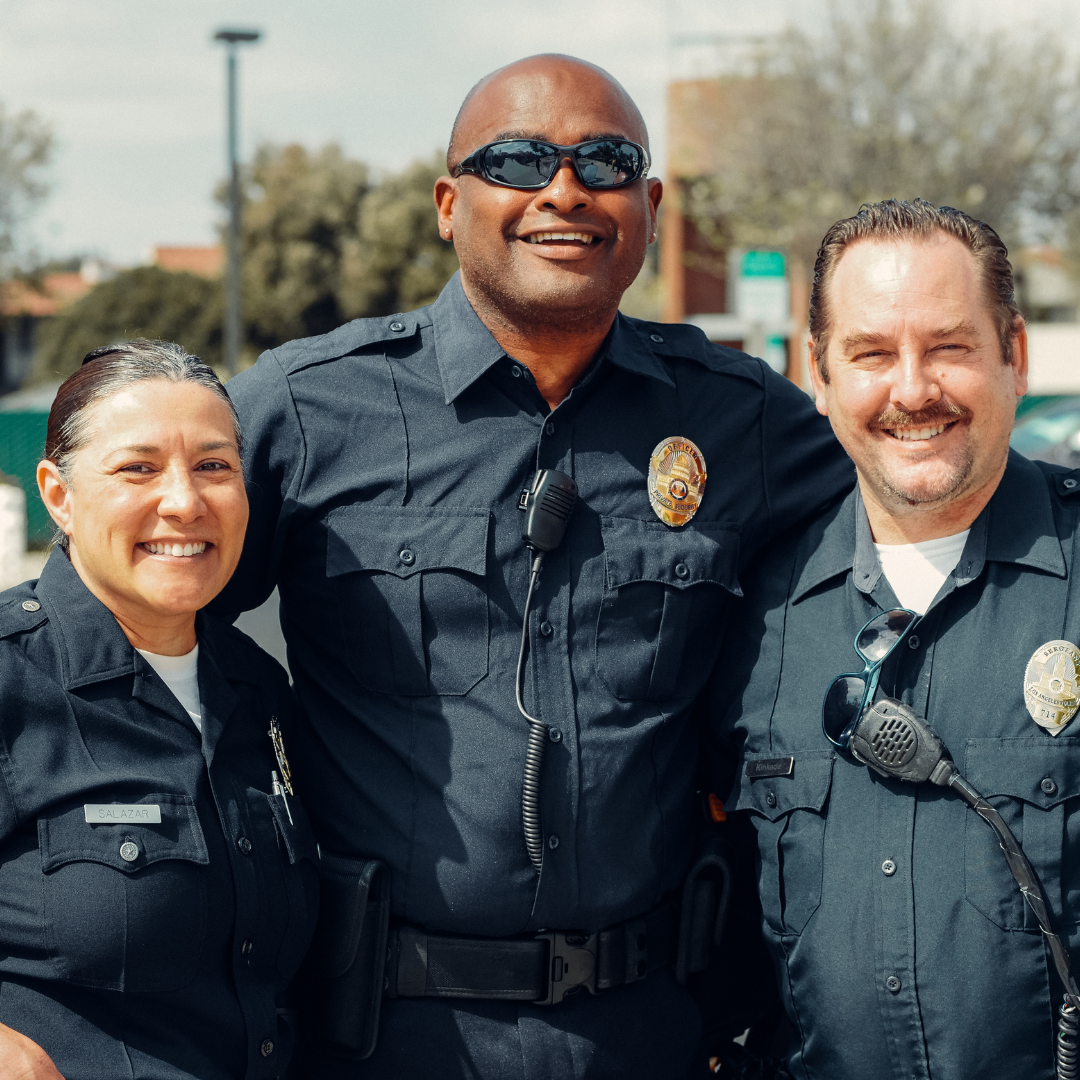
Ethics, Empathy, and Enforcement: The Human Side of Criminal Justice
When most people think of criminal justice, they often picture high-speed chases, courtroom drama, or gritty crime scenes. There’s no denying that it can be an exciting, fast-paced career full of high-stakes moments. These elements are part of what draws many to the profession. But beyond the adrenaline lies something even more powerful: the human connection.
Criminal justice is ultimately about people. It's about making ethical decisions, showing compassion, and enforcing laws with a sense of responsibility and humanity. In today's evolving justice landscape, ethics and empathy aren't optional. They're essential.
Ethics and Empathy: The Pillars of Modern Justice
Criminal justice professionals encounter people at their worst moments. Every interaction carries weight. Ethical action is required, whether it's with a victim seeking justice or a suspect in crisis. Ethics means doing the right thing, even when it's the hard thing to do. It means upholding the law while respecting individual rights.
Empathy, on the other hand, allows professionals to see people as more than just their actions—to understand their stories, trauma, and potential for change. Employing both ethics and empathy requires balance.
An officer responding to a domestic dispute must weigh safety with sensitivity. A probation officer must balance accountability with encouragement. A courtroom judge must remain impartial but compassionate. These moments demand more than training. They require character.
Empathy doesn't mean excusing behavior. It means working to understand the reason for the behavior. A person arrested for theft might be struggling with addiction or homelessness. Recognizing the underlying issues doesn't negate the crime but can shape a more effective, humane response. This humanitarian lens not only upholds justice but can enact change in the lives of those in the criminal justice system.
“The field of Criminal Justice was something I sought out because I wanted to become a police officer and make a difference both in my community and in the world,” explains Bachelor of Science in Criminal Justice Program Director Tyoto D. Wardlow, MS. “I wanted people to feel safe when I was around, and for them to know, when called upon, I was there for them. I wanted to make the world a better place.”
Enforcement with Integrity
There's a common misconception that empathy undermines enforcement. In truth, the most effective enforcement is grounded in ethics and empathy. De-escalation techniques, community policing, and mental health crisis intervention are all strategies that prioritize safety while honoring the dignity of everyone involved.
Building trust within communities often starts with listening. When law enforcement professionals understand the communities they serve, they can respond more appropriately, reduce tensions, and build long-term relationships. Ethical enforcement requires responsible use of authority while treating every individual with fairness and respect.
Consider the role of corrections officers, who oversee individuals serving time. Their work isn't just about maintaining order, but also about creating environments where rehabilitation is possible. They must balance control with compassion and structure with support. These complex tasks require a deep understanding of human behavior.
Preparing for a Purpose-Driven Career
Education matters to make an impact in criminal justice. Southern Nazarene University's Bachelor of Science in Criminal Justice equips students with a strong foundation in law enforcement, including ethics, leadership, and social responsibility. Designed for working adults, the program offers flexibility and real-world application.
Students don’t just study laws and procedures. They also examine the social and psychological factors that influence behavior. Courses like Mental Health & Societal Implications of Law Enforcement and Diversity, Inclusion, Equity, and Justice emphasize critical thinking, ethical decision-making, and practical skills needed in law enforcement, corrections, court systems, and beyond.
“Criminal Justice is broader than just law enforcement,” Wardlow explains. “This field has so many options, but they all end with making a difference in someone's life.”
There's more for those who want to explore the human side of justice. SNU's Master of Arts in Applied Psychology offers a decisive next step.
The Psychology Behind the Badge
Understanding human behavior is critical in criminal justice. The Master of Arts in Applied Psychology at SNU equips graduates with insight into trauma, addiction, decision-making, and behavioral science. These skills are invaluable in criminal justice roles.
Courses like Legal & Ethical Issues in Counseling and Cultural Responsiveness & Diversity in Counseling work to solidify these skills for professionals working in criminal justice.
A graduate with both a criminal justice and applied psychology background is uniquely prepared to lead with empathy and insight. They can serve on crisis response teams, work in rehabilitation or victim advocacy, influence policy, or manage teams.
Knowledge of applied psychology can help professionals:
- Address mental health and substance abuse challenges in justice settings
- Improve community engagement and communication
- Reduce recidivism through behaviorally informed strategies
- Make ethical decisions grounded in psychological insight
Whether on the front lines or behind the scenes, this integrated education can make you a more thoughtful, effective, and compassionate criminal justice professional.
A Justice System That Sees People
The future of criminal justice isn’t just about new technology or stricter enforcement. It’s about a system that sees people. A system that values ethics, practices empathy, and uses enforcement to protect and uplift communities.
Southern Nazarene University believes in educating professionals who bring integrity and compassion to the field. If you're driven by a sense of justice and a desire to serve, SNU's Criminal Justice and Applied Psychology programs can help prepare you for a career that makes a difference.



-1.png?width=352&name=Blog%20Photos%20(31)-1.png)

.png?width=352&name=Untitled%20design%20(25).png)